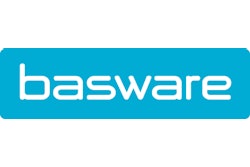Stamford, Conn.—Jan. 28, 2013—Purchase to Pay (P2P) and e-invoicing solutions provider Basware predicts a number of key trends and issues that are expected to impact finance and procurement in 2013.
The increasing use of mobile apps to conduct key invoice processing functions from anytime and anywhere; expanding use of social media platforms to collaborate with colleagues, suppliers and partners; and the growth of the cloud as an enabler of automation for companies of all sizes, are central themes that the company sees driving growth in the this year. Additionally, business commerce networks are expected to continue expanding, further driving visibility and control across the financial supply chain.
"This year, marked by a continued focus on better managing spend, and increasing profitability, companies will continue to require real-time visibility and control over finances,” said Bob Cohen, Vice President of Marketing, North America for Basware. “While the challenges and goals remain the same, in 2013 we expect to see an explosion in mobility, social collaboration, cloud-based services and other trends that are redefining the way people work. Business commerce networks will continue to grow as they enable companies to conduct P2P transactions more effectively, gain critical insights into savings opportunities, and better manage cash flow.”
Below is a more detailed look at each of the trends impacting the financial supply chain for 2013.
It’s the Year of the App with BYOD—As workers become increasingly accustomed to using the same devices (i.e., smart phones and tablets) at work, as they do at home, they require mobile apps that enable them to conduct core business processes on the move to maximize productivity. Mobile apps for Purchase to Pay are enabling professionals to review, approve and reject invoices and purchase requisitions when they’re out of the office. With these mobile capabilities enabling real-time anywhere, anytime access, businesses can speed up the review and approval cycles of invoice and requisition processing, providing data visibility and actionable performance insight on the move.
Companies Can’t Afford to be Anti-Social—The growth of social media is continuing to permeate the corporate environment. While many companies are establishing policies to limit or manage the use of social media in the workplace, savvy organizations recognize that social media can further collaboration in the workplace. In the finance department, social media is being applied to enable an immediate dialogue between buyers and sellers, to discuss purchasing requisitions and invoices and handle any disputes on the fly.
E-invoicing and Open Network Collaboration Continue to Grow—The focus on financial collaboration between buyers and suppliers through e-invoicing and transactions over interoperable business commerce networks is increasing as companies realize their value. E-invoicing usage is rising thanks to a “viral” ecosystem as it is passed down the value chain from a large customer to a large supplier and consequently the suppliers that work with that business. These factors—combined with legislative changes and e-invoicing mandates by governments, improvements in connectivity solutions and market awareness—not only increase the number of organizations adopting e-invoicing but also the volume of invoices processed. In the 2012 e-invoicing study commissioned by Basware, 73 percent of respondents globally used electronic invoicing to some degree compared to 59 percent in 2011.
The Open Network, the global ecosystem of interoperable business commerce networks across which buyers and suppliers can easily transact regardless of their technology or document formats, will continue to be increasingly important as businesses look to increase cross-enterprise collaboration to speed up business processes and the flow of cash. Closer interoperation between suppliers and buyers will also provide better control over goods and services as well as the ability to conduct global commerce more effectively.
The Cloud as a Great Equalizer—Cloud computing is becoming more mainstream for businesses of all sizes, as they recognize the value it provides to their organizations. For example, by conducting financial operations in the cloud, Accounts Payable (AP) and finance departments can be agile and easily respond to changes in economic conditions, regulations or company developments without involving IT resources. Security will continue to be at the heart of cloud offerings, with providers maintaining the highest levels of security across all financial transactions and business interactions. The cloud promotes the democratization of financial software, bringing its benefits to SMEs as well as enterprises, enabling them to cost-effectively realize the efficiencies and cost savings that these applications deliver.
Increased Analytics for Better Decision Making—Companies are relying more on analytics to uncover financial bottlenecks and opportunities for costs savings, among other areas. Relying on unprecedented levels of visibility over the complete financial value chain, dashboards of key performance indicators (KPIs) and other metrics and the ability to drill down into root cause analysis—companies can uncover savings opportunities and are more able to make financial decisions that align with corporate strategy. By gathering information across a business commerce network of trading partners, companies will gain greater insights beyond their internal organization. For example, they can uncover procurement and payment trends; optimize performance of the transactional network; and identify opportunities across the financial supply chain for accelerated payments, factoring or other strategies. With this insight across the entire P2P extended network, companies can improve their cash-to-cash conversion cycles and critical performance indicators such as days sales outstanding (DSO’s) and days payment outstanding (DPO’s).












